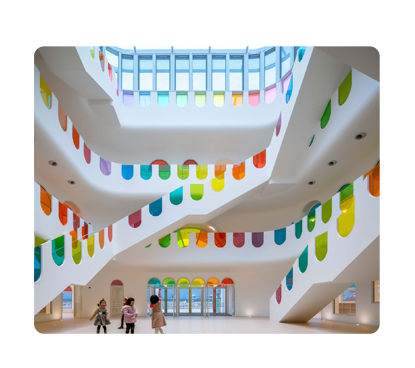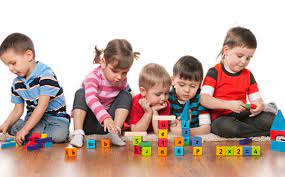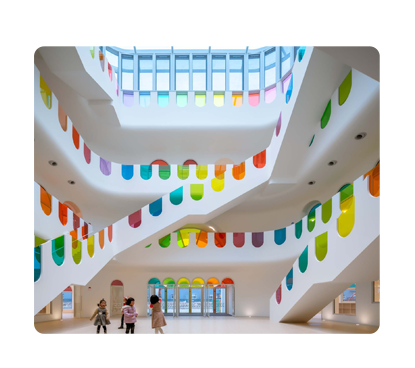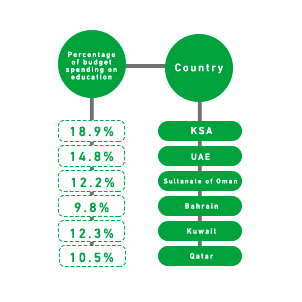Mashroo3k Consultancy Company offers a comprehensive feasibility study for a daycare project in Qatar, with the highest profit return and the best payback period, through precise studies of the educational sector in Qatar, analyzing customer desires, and proposing new methods to enhance the project’s competitive advantages.

Through a nursery, educational services are provided to children before the primary school stage. The nursery contributes to developing children’s skills and instilling in them the values of national and religious identity.
The children’s nursery project is, according to the experts of the Mashroo3k Economic Consulting Company, one of the vital projects in the educational sector in Qatar. The nursery provides a space for preschool children to develop their cognitive, artistic, and athletic skills, instill values of brotherhood and social interaction, and help them adapt to their social environment.



Providing all necessary equipment for children at the daycare.
Exciting architectural designs tailored for children.
A highly skilled and qualified staff.
Teachers and specialists of the highest level.
Attention to children’s healthcare.
Focus on the educational level of the children.
Emphasis on general cleanliness of the daycare.
Continuous monitoring and self-assessment of the children.
Motivation, encouragement, and development of children at the daycare.
Quality in providing educational services.
High standards of safety and security at the daycare.
Use of advanced technology in operations.
Executive summary
Study project services/products
Market Size Analysis
Risk Assessment
Technical study
Financial study
Organizational and administrative study

The Education Sector in GCC Countries
Because “Mashroo3k” Economic Consulting and Market Research Company believes in the importance of the education sector and its role in localizing national labor, it presents below the key indicators of the educational sector in GCC countries, thereby encouraging investment in this vital sector:
The total number of students in the Early Childhood Development stage (including nurseries and kindergartens) in GCC countries, according to the latest available statistics, reached 851.5 thousand students.
The number of school education students in the GCC was estimated at 9.3 million students (79.4% in the public sector and 20.6% in the private sector).
The number of adult education center learners was estimated at 181,247 students.
The number of higher education students was 2,206,446 students.
The number of early childhood education teachers was 50,647 teachers.
The number of school education teachers was estimated at 727,904 teachers.
There are 5,806 educational institutions operating at the early childhood stage.
There are 32,310 educational institutions operating at the school education stage.
Over the past years, governments in GCC countries have sought to bridge the gap between education and the labor market. They have adopted curricula that increase the share of vocational and technical education and encourage learning through modern media and technologies. It is also worth noting the increase in government spending by these six countries on education and its quality to graduate generations that meet the private sector’s labor needs.
According to the latest statistics:
Saudi Arabia spends 18.9% of its budget on education.
The UAE spends 14.8%.
Oman spends 12.2%.
Bahrain spends 9.8%.
Kuwait spends 12.3%.
Qatar spends 10.5% of its budget on education.
By the year 2023, the value of the private education market in GCC countries is expected to reach $26.2 billion.
The Global Education Sector:
The size of the global educational services market reached approximately $2,882.52 billion by the end of 2021, and global experts expect it to reach $3,191.79 billion by the end of 2022 — achieving a compound annual growth rate (CAGR) of 10.7%.
By 2026, the market value is projected to increase to $4,623.90 billion, achieving a CAGR of 9.7% over the forecast period.

By 2030, the global value of education as an industry is expected to reach $10 trillion USD.
By 2024, the global online education market is projected to reach $247.46 billion USD.
The AI-powered education market is expected to expand at a compound annual growth rate (CAGR) of 36% from 2022 to 2030.
In the year 2000, the number of pupils worldwide was approximately 657 million, and this number increased to 739 million by 2019.
In 2000, the number of secondary education students was around 452 million, rising to 601 million by 2019.